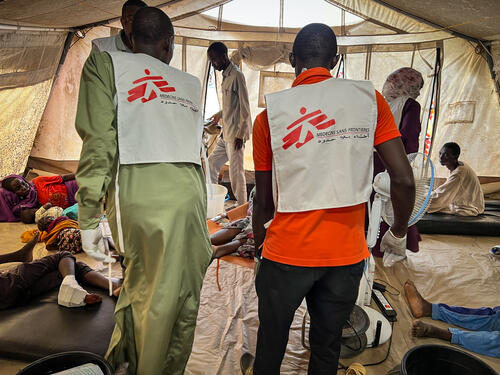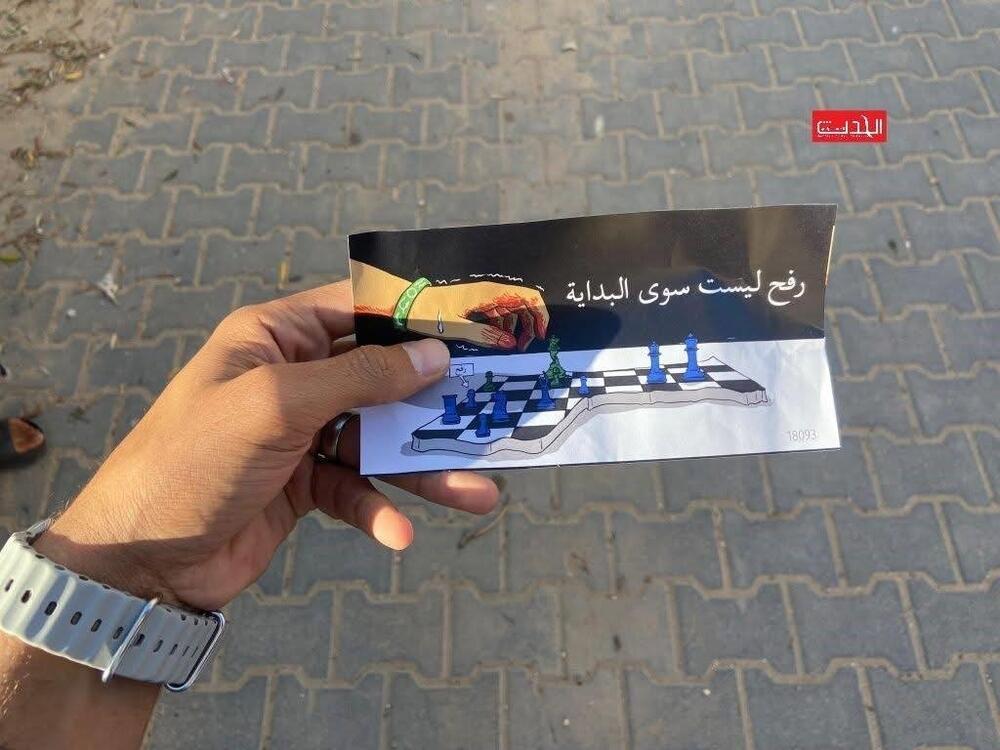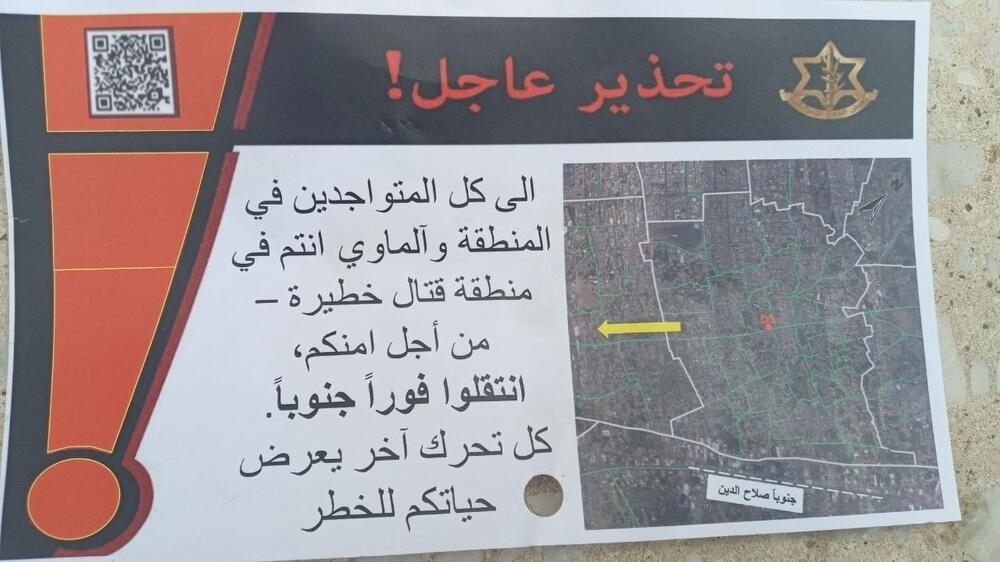Gaza: Displacement orders are “psychological traps”
Iman Abu Shawish, an MSF mental health supervisor in Gaza, explains the profound psychological impact of the displacement orders issued by Israeli forces on people in Gaza.
This article is based on an interview on 24 April 2025.
“Displacement in itself is a loss. It's a loss for people who are important in your life, just like when you lose a job, a place, or a life routine.
The psychological impact mirrors the five stages of grief; denial, anger, bargaining, depression and acceptance. There are a lot of individual differences depending on someone’s personality, past experiences, support system and ability to cope. Denial for example can last for an hour, or years for other people.
Suppose that you are in one of these stages. Even if you are in the bargaining or denial stage, it may seem to people that you are stable, because they don't see any reaction from you. But deep inside, there are a million processes in the brain, it can be chaos as you are processing what happened.
We find different reactions; people can get very aggressive, verbally or physically, and there are people on the other extreme, completely isolated, they don't have relationships, they don't like to hang out, they withdraw from everything, they feel depressed.
But here's the cruel reality: just when someone reaches acceptance, another evacuation order comes.

Our work saves lives
Anxiety responses
Anxiety may occur in all forms: panic attacks or panic disorder. There are also traumatic reactions, which we call post-traumatic stress disorder (PTSD) or acute stress disorder which include many things, for example dissociation.
One nurse described that when she goes to work, and comes back, she keeps looking at her hands asking herself if she is real or not. A child once looked at me and told me “I think I am dead but if you can hear me, maybe I am alive”.
Our brain does not differentiate between reality and imagination. No matter if you are in a house or in a tent, your brain thinks that anxiety and anticipation are real.
“Humans crave stability, but evacuation means chaos, change, loss. For Gazans, that is the cruel reality for more than 19 months now.”
The person must deal with what happened even if it was already expected. Then depression comes in, and when another evacuation happens you start again a cycle that never ends.
Acute stress reactions include images or detailed memories from previous evacuation orders and become intrusive. The resulting stress and anxiety can provoke reactions in the body, for example muscular and abdominal pain, shaking, and fatigue.
It affects children, the way they play, their emotions, and we see cases of children building tents as a game. The games recreate evacuations; those are their flashbacks revealed through their only form of expression.
People who went through displacement orders at least once are forced to relive it again and again. So even if their current living conditions are bad, living in tents, barely making ends meet, evacuation means restarting from zero.
Humans crave stability, but evacuation means chaos, change, loss. For Gazans, that is the cruel reality for more than 19 months now.
False responsibility
One person I treated was hit in her family house, she was the only survivor, later she was killed too. Why didn’t she evacuate?
People often blame themselves. ‘Why did I stay?’ ‘Why didn't I leave?’ This guilt isn't rational because they had no other safe options. But the brain keeps searching for explanations, creating false responsibility. A woman hated her brother because he didn't act with 'intuition' before Israeli forces bombed her home killing her parents.
The survival guilt has nothing to do with the evacuations, but it comes from the context. Some people think: ‘why did I not die with them?’
It is difficult to make a person feel positive no matter how hard you try. The support system is falling because people who support you live in the same conditions.
Anxiety, depression, negative emotional state, inability to live positive emotions; we do not have time to cope in the right way, because our brains are not free to think, or to assess situations in the right way.
We think about other things, how to get food, water, bread. And we often do not have a support system, so it is complicated in all aspects.
Post-traumatic growth
There is an important term in psychology which is PTG, post-traumatic growth, and I have seen this a lot. There are colleagues, that have adopted a positive change, in their way of thinking, in their behaviour after the trauma.
As people, we learn to deal with trauma, meaning okay there was displacement, then ceasefire, okay the house got bombed and we got out of it. We adopt new personality traits, a different way of thinking, different behaviour.
“The cruelty is not only in the evacuation orders themselves, but also in how they are phrased. These aren't straightforward military orders; they are psychological traps.”
Psychological traps
The cruelty is not only in the evacuation orders themselves, but also in how they are phrased. These aren't straightforward military orders; they are psychological traps. The Israeli army doesn't just tell people to leave; they twist the very symbols that once gave Palestinians comfort.
Quranic verses about ‘divine punishment’ printed on evacuation flyers. Classical Arabic poetry about exile used in social media warnings. Even their spokesperson’s tweets become sudden death notices, no clear timeframe, just a vague threat broadcast to millions already traumatised."
MSF and the Israel - Gaza war
An unprecedented humanitarian crisis is unfolding in Gaza. MSF teams have worked to treat the wounded and supply overwhelmed hospitals as indiscriminate airstrikes and a state of siege threaten millions of men, women and children.


